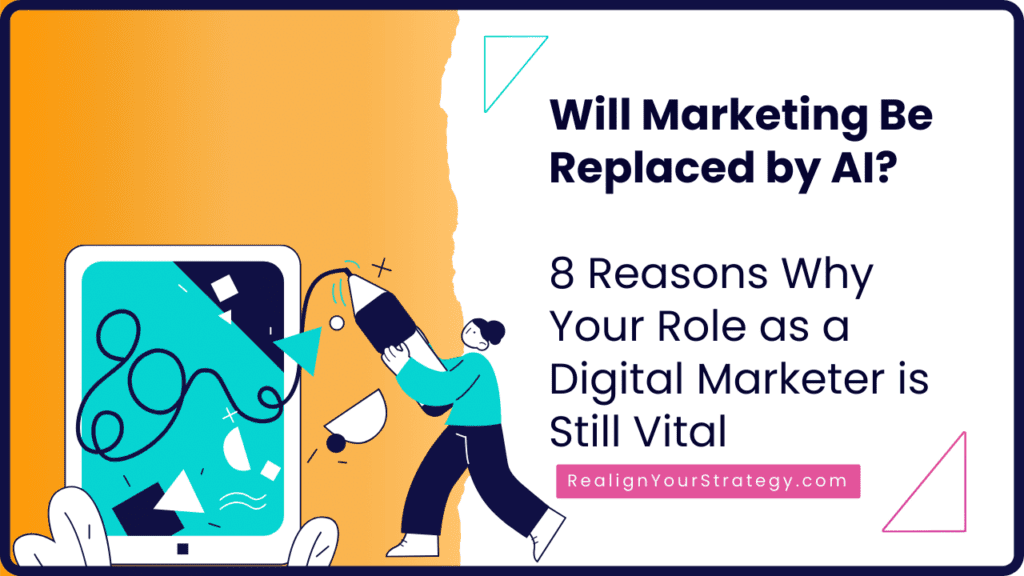The job of a digital marketer is ever-changing. The first version of our business began with a 2008-era Facebook Business Page and has evolved through at least four so-called social media and Google apocalyptic events for marketers.
Every single time headlines have warned that the end of something was upon us, it was almost never true.
Early in my career, I spent big chunks of time convincing executives that email, then social media, and sometimes the internet itself was not just a passing fad. The COVID-19 pandemic finally got nearly everyone on board (although I’ve recently encountered a few holdouts).
Then, just as it always does, another marketing apocalypse was upon us—this time in the form of generative AI. Suddenly, every digital marketer I know is wondering how relevant their job will be in a few years. So, at the risk of giving away the ending too soon, let me say this upfront:
Marketing as a whole will not be replaced by AI—but it will be transformed.
Smart, sustainability-minded digital marketers will continue to be vital. However, the days of digital marketing as primarily a manufacturing mill of mediocre content and data-driven hacks are nearly over.
There’s no question that artificial intelligence is changing the digital marketing landscape. To paraphrase Rand Fishkin, AI-driven digital marketing is the new floor. It’s the least you can do.
That means the days of hiring marketers who don’t know how to ideate, engage, strategize, or create memorable experiences are coming to an end. AI can now do the rote tasks for us.
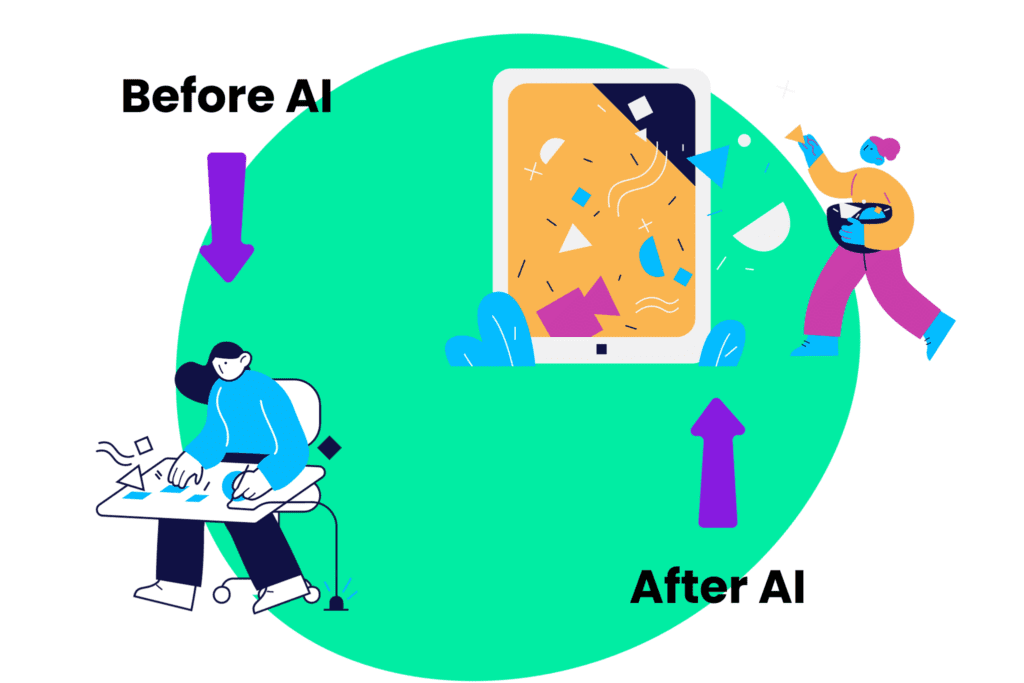
Great marketing isn’t a rote task. It’s a deep engagement with, commitment to, and alignment with a community that shares your values and worldview.
Beyond strategic reasons, the team at Realign Consulting and I have come up with at least eight reasons why AI will not replace humans as marketers.
Decoding Marketing Automation: What’s the Role and Impact of AI in Digital Marketing?
Perhaps the most exciting current use case for AI-related marketing tools is in the realm of marketing automation. In the hands of a proficient strategist, email tools can already personalize messaging to a degree that most non-marketers would find creepy when explained to them.
However, as anyone who has ever received a wrongly-timed email with their first name tacked onto it knows, automations can go awry.
Marketing automation is the software-assisted systemization of customer segmentation, data, and campaign delivery.
AI’s ability to synthesize data into marketing automation tools means anticipating correct timing and understanding actions that trigger need is becoming significantly easier.
The days of hiring consultants and digital strategists to map complex customer journeys are mostly at an end. AI tools can do much of the detail work for us.
So, what is the role of digital marketing in marketing automation today?
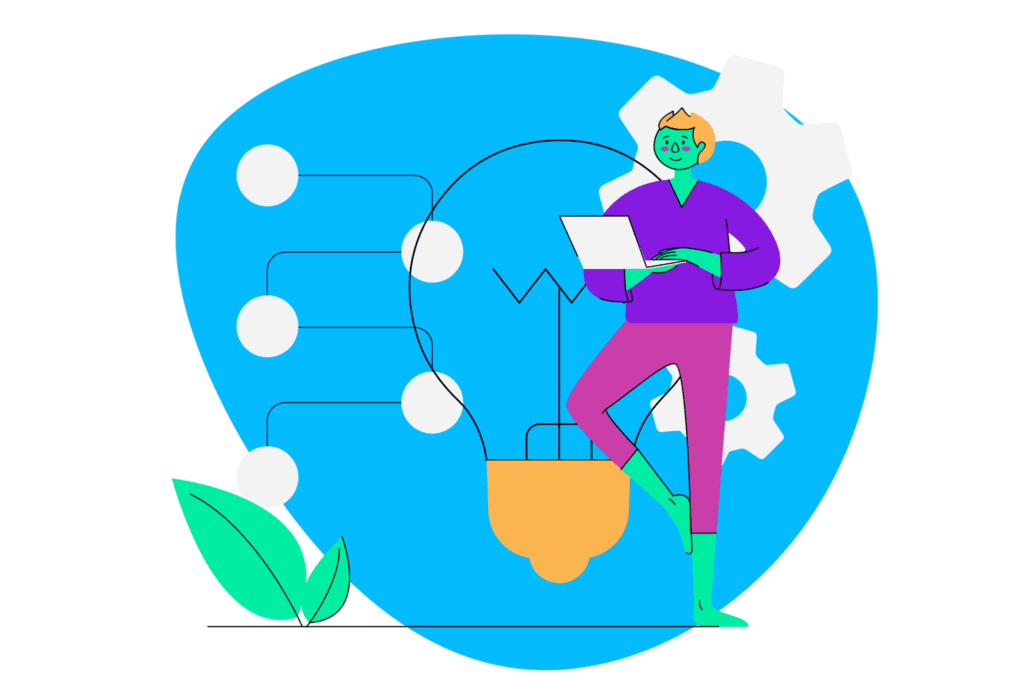
As any good brand lead or CMO can tell you, the ability to design a complex customer journey that creates digital actions does not necessarily come with the understanding of its brand implications, values alignment, or consideration of impact or ethics.
This is why most impact-focused or even brand-minded companies do not allow inexperienced digital marketers to stage campaigns or set rules for their marketing automation alone.
When using AI in marketing automation, AI recommendations and tools are like that of a very well-skilled Junior Marketer—knowledgeable about the possibilities but lacking context.
Our team at Realign Consulting believes that the power of AI to make marketing automation more manageable and effective for the average small business or marketer is exciting. And, it demands more vigilance of our values and the impact we intend to have on the humans that experience our marketing even more important.
So, what exactly can AI do to help with your marketing efforts today?
Things AI Can Do Already (and Can’t Do Yet)
At the moment, AI is evolving faster than this post could possibly keep up with. Right now, there are a few things that we’re clear it does really well (and some that it most definitely does not).
3 Critical Uses of AI for Marketers in 2024
- Aggregating data and predictive analytics – Perhaps our favorite way to use AI tools is turning massive amounts of data into meaningful insights. Looking at past performance to predict future outcomes typically confuses entry and mid-level marketers. AI quickly transforms this information into a usable set of ideas.
- Audience Segmentation – This is another area many marketers struggle to do well. However, AI can use existing data from customers and tools like Sparktoro, SEMrush, Ahrefs, etc., to make the process of figuring out who gets what when, what messages work best with which audience, and just-in-time deliveries of nurturing sequences much easier and faster.
- Anomaly Detection – Many marketing campaigns get tripped up by surges in bot traffic. One of the easiest to implement AI support tactics right now is using it to detect these inconvenient and often obnoxious anomalies.
For a deeper dive into using AI tools for your marketing, read more here.
3 Human-Powered Marketing Roles Where AI Is Pretty Terrible
- Brand Strategy – AI-generated articles, images, and videos are already flooding the already crowded internet. That’s why we believe a strong brand is more important than ever. Branding is much more than a logo or a set of keywords. At its best, brand strategy creates deep connections between a business or product and the communities it serves. AI is unlikely to replicate the kind of complex interconnectedness that strong brands are made of.
- Innovation – Tools like ChatGPT are very good at iteration and predictions based on the past. However, because these large language models are built on words and images that have already come before, they’re not very good at innovation. What we’re seeing (and what seems to be getting worse every day) is a churning and redistribution of the same ideas. Just as the trend towards data-driven cultures has dampened business innovation since user tracking took over the internet, using what has happened in the past will only gain you a more optimized car, not a hovercraft.
- Creating content that drives connection – Most AI content is “good enough” for the mediocre marketer. It’s the equivalent of straight Cs in college English—sure, you’ll graduate, but you didn’t learn to write. Although AI writing tools do create interesting headlines and sometimes even engaging short copy, they fall short at longer form writing and building content that engages deeper emotions or deeper thinking. You still don’t want an AI tool to write a novel, make a movie, or create an album. AI can be used to develop these things, but it still needs a human hand to guide, shape, and make the connections we expect from great marketing over time.
Like with any technology tool, there are pros and cons to its use for businesses. Read on for some of ours…
Pros and Cons of AI in Marketing
Certain aspects of marketing will be replaced by AI—and if they can be, they probably should be. However, the industry as a whole still needs human guidance and innovation.
Benefits of Using AI in Marketing
- Enterprise-only data analysis and synthesis tools are now available to anyone.
- Content creation is faster than before.
- Personalization is easier than ever before.
- Technical optimizations and monitoring can be mostly automated.
Drawbacks of Using AI in Marketing
- Using AI tools to help answer predictive questions can lead to incorrect and problematic answers.
- AI-generated content often lacks emotional depth, resonance, and/or strategic connections.
- Poorly executed personalization is easier than ever before.
- Privacy and ethics concerns are not well addressed.
AI’s Efficiency Cannot Compete with the High-Value Qualities that Define Great Marketers.
We believe that AI will replace entry-level marketing roles that look more like production lines than strategic enterprises.
Basically, any marketers whose roles revolve around a specific script and set of rules will no longer be needed, including those who identify solely as graphic designers, technical SEOs, copywriters, and social media marketers.
(We also believe the role of the SEO specialist, one we’ve previously been deeply committed to, is rapidly becoming defunct.)
Yes, this is and will continue to cause a lot of pain in our industry. We’re empathetic to the humans impacted by this, but we don’t believe there is a backward ramp here. These types of marketers are the modern equivalent of coal miners—needing to be re-skilled and supported in finding a new way of working in the world.
However, there’s still an essential role for diversely experienced marketers with range and well-developed strategic thinking.
While AI is changing the future of digital marketing, Strategic Marketers will not be replaced by AI. Values-Driven Marketers will not be replaced by AI. Adaptive Marketers will not be replaced by AI.
AI is still a long way off from being capable of the kind of synthesis, creativity, and strategic thinking that are hallmarks of great marketers.
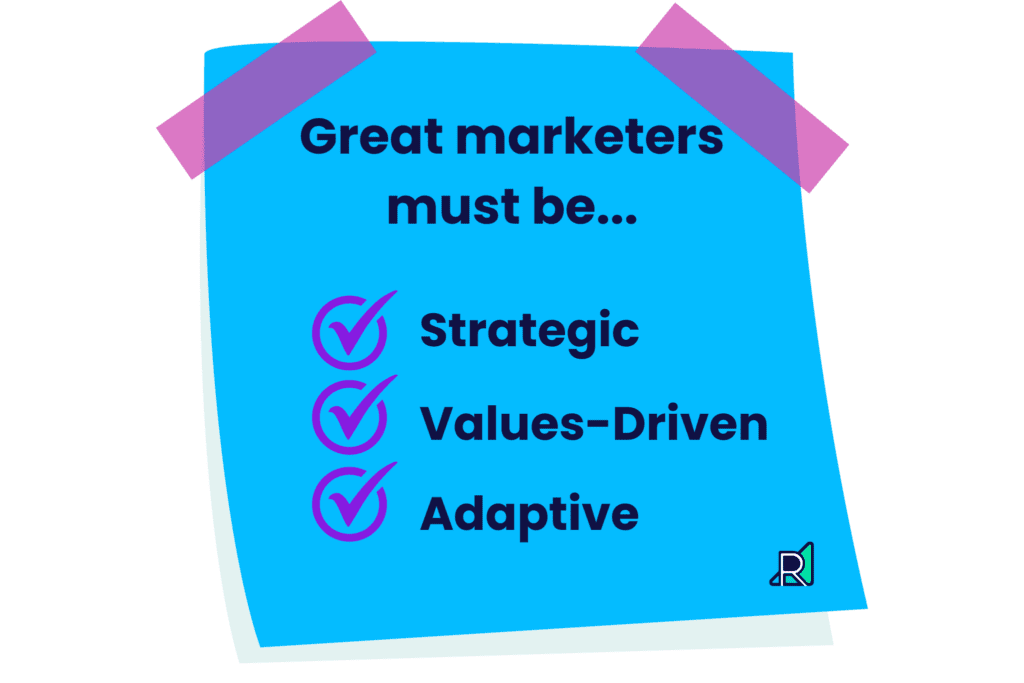
8 Reasons Why the Job of Marketers Will Stay Vital in an AI-Flooded World
There are plenty of places where we think humans might be in danger from AI, but entirely replacing marketers isn’t one of them.
If you’re a marketer, we believe what’s needed in this moment is to lean into the humanity of your work in a big way. That’s because there are at least eight ways that AI cannot compete with human intelligence and empathy, which are essential to marketing. They are…
#1 - AI Lacks Emotional Intelligence Ability.
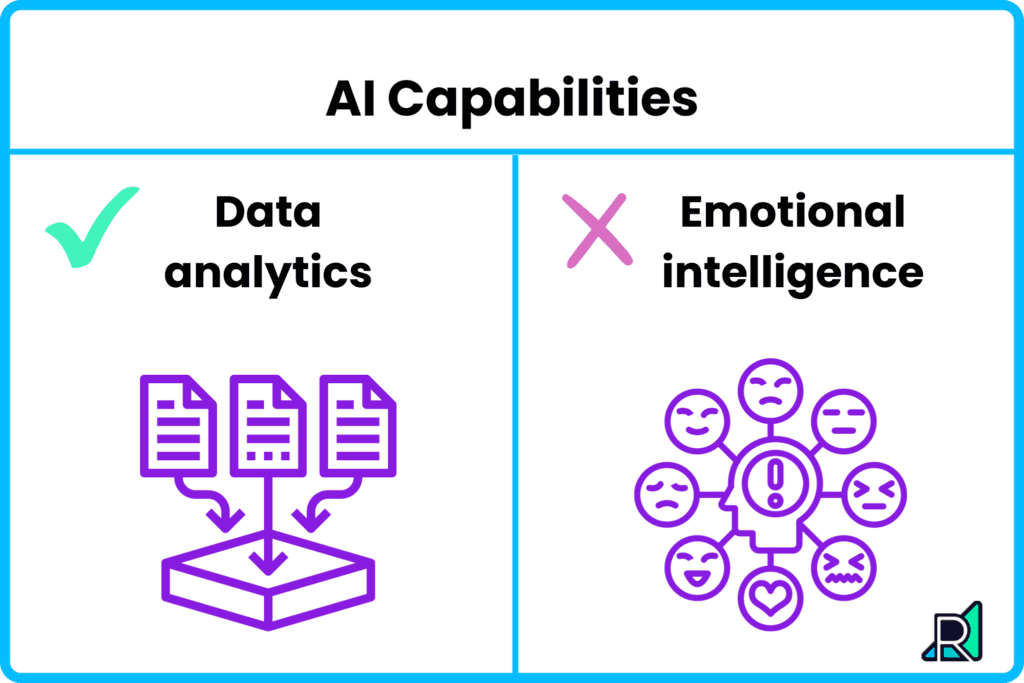
Marketing will not be replaced by AI because all marketing relies on emotional resonance in some way. As anyone who has played with ChatGPT for a few minutes knows, this is not the strength of AI-generated content.
When we say an article written by AI is “pretty good,” or a video made by a bot is “lacking something,” that something is usually emotional resonance.
Does this mean that creative will not be generated in huge quantities by AI?
Absolutely not. Just like there has been a market for content mills since the beginnings of web-based search, there will always be a market for cutting corners with AI-generated content.
But that type of content doesn’t work for most markets now, and it’s not going to in the future.
Years ago, we saw companies take a few years to grapple with $5 articles written by non-native language speakers no longer working for website traffic. In the same vein, we think it might take a few years for some of the AI-bullish companies to cycle back to more human engagement with their content. But there is no doubt it will happen as their results diminish.
#2 - Crafting Compelling Campaigns Still Relies on Human Creativity.
AI tools are great for generating ideas and helping move the creative process along more efficiently. But they can’t handle creating cross-channel, multi-touch campaigns with cohesive messaging and emotional connection.
Much has been written about the hilarious, odd, and sometimes downright bizarre things AI tools do as complexity rises. A multi-channel marketing campaign with many intersecting layers is precisely the type of complex operation that still needs human guidance to remain compelling and connective.
The ability to connect emotional resonance across channels and platforms is a particular strength of humans over AI. It is a clear example of why siloed production roles in marketing are very much in jeopardy while roles requiring cross-sectional experience are in more demand than ever.
#3 - AI Won’t Replace Digital Marketing Jobs, But It Will Certainly Transform Them.
While we do not believe that AI will replace digital marketing jobs entirely, we do believe AI is currently transforming all digital marketing jobs. And it is likely true that there will be fewer digital marketing jobs available in the future.
For example, consider the job of the average customer service agent. Until recently, customer service representatives in most large organizations worked primarily off of scripts and strict parameters to solve people’s service needs.
Now, any problem that a scripted response can easily solve falls under the realm of AI. Even mildly complex answers that only require a few back-and-forth interactions can be solved by AI. But, as needs grow more complex, the AI breaks down quickly.
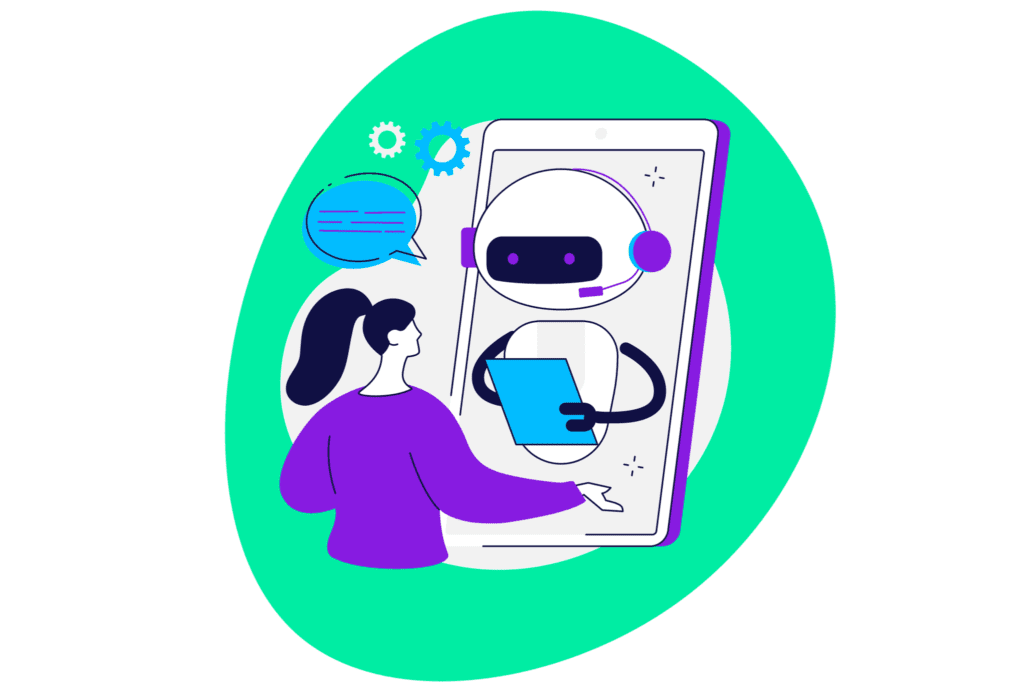
The result? We have less need for humans to sit behind a computer screen to process your return. However, we very much need humans to figure out how to fight with an airline over lost luggage (as we recently did with my credit card company’s help).
The customer service jobs of the future will likely focus entirely on solving complex problems and creating psychological safety.
In the same way, scripted, rigid marketing assets and campaigns no longer need humans to create them. If the path is well-trodden, an AI tool can do that.
Strategic and creative thinking is the new baseline for work in the marketing world.
#4 - Natural Language Processing and Machine Learning Models are Still Unpredictable.
During a recent creative session with ChatGPT, I asked it to generate a story based in the horse country of Ocala, Florida. The AI formed a decent narrative arch and a compelling list of characters. Then, it did something unexpected—inserting scenes set in the swamps of the Everglades.
For those unfamiliar with Florida’s geography, Ocala is five hours and 300 miles from the Everglades. The geography of the area is flat scrub lands and dense pine forests.
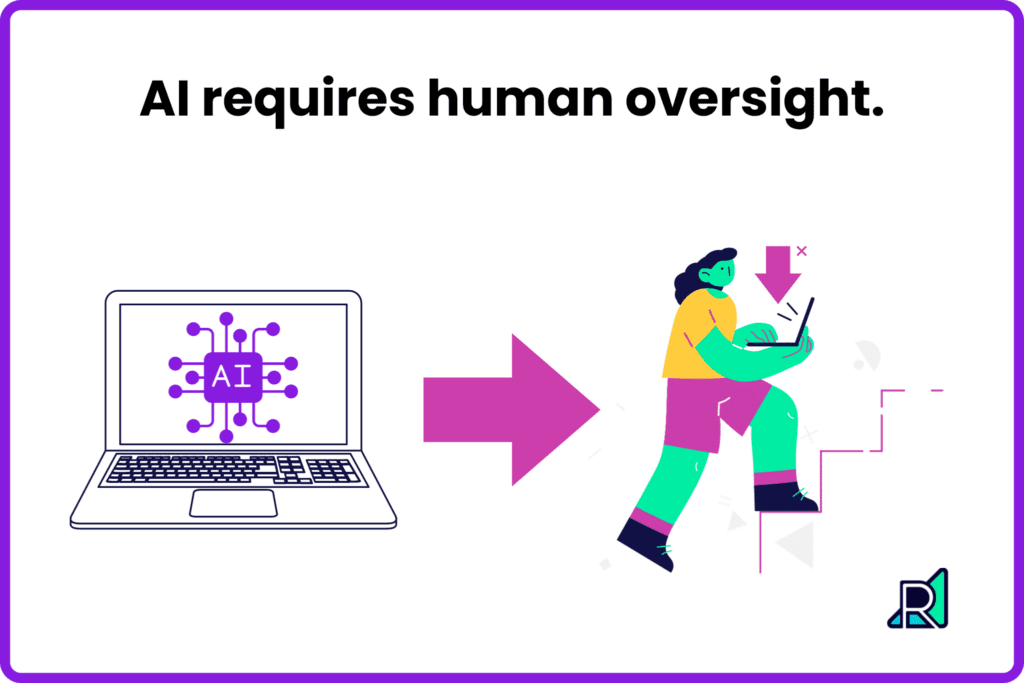
What was happening here?
Many things, including clearly displaying the inaccuracy of large language models (LLMs). As several studies have shown, including this one from Stanford University, the accuracy of LLMs gets worse the more data is input into them.
It is still not advisable to rely on the accuracy of an LLM such as ChatGPT. We see many small businesses doing this, particularly with their written content, and the consequences can be reputation-damaging, to say the least.
#5 - Artificial Intelligence Has a Limited Grasp of Context and Nuance.
Emotional intelligence and the ability to communicate with stakeholders have long been crucial to success in a marketing job. AI cannot replace marketing primarily because it is incapable of developing the skills needed for this role.
Getting usable results from an AI tool relies heavily on producing a detailed prompt—at least a few sentences long—because AI does not inherently understand nuance and context.
So, it should be no surprise that these tools’ strengths do not include the ability to understand grey areas, frame ideas within a specific business context, or decide what to do based on the nuances of human needs within an organization.
We won’t lie—these skills can create struggles for less experienced marketers. Understanding context and nuanced issues within an organization are largely functions of experience.
As we train new marketers, we’ll need to do better at helping them develop these skills faster and more functionally. Where the past emphasis in marketing training has been on navigating tools and data—now quickly falling under the skillset of AI—the future training ground is in vertical thinking.
#6 - Experienced Marketers—Those Skilled at Adaptability, Intuition, and Strategic Mindset—Will Become Vital.
The basic tenets of marketing are not difficult to find or understand. ChatGPT can generate a list in a matter of seconds. And just as with any industry, it is necessary to have a generally agreed-upon foundation to build from.
But what happens when things go wrong? When there are shifts in the economy or culture that affect the way your latest offer might be perceived? When the tide of public opinion turns against (or for) a particular way of doing things?
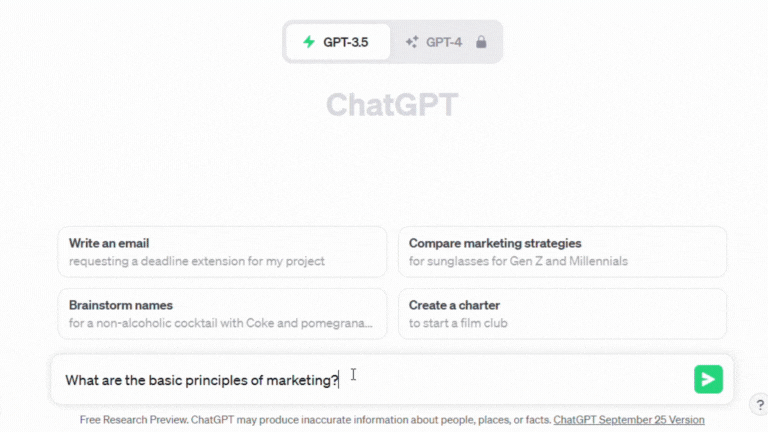
Experienced marketers can pivot where machines cannot. AI can identify patterns, but it also gets stuck in them.
When a situation calls for innovation, long-term strategy, or creating connections between seemingly disconnected things, it is these marketers who can adapt the pattern to fit the needs of the moment.
(AI cannot, for example, replace a strategic planning consultant who understands the intricacies of your brand, your team, and the community you serve.)
#7 - Human-Led Work Will be the X Factor to Differentiate Yourself From Competitors.
Every marketing campaign should begin with what we call the 3-Core: the three areas where your brand is in alignment with the people you wish to serve. Specifically, your core values, beliefs, and communities. These connection points should determine the way you craft the buyer’s journey for each campaign.
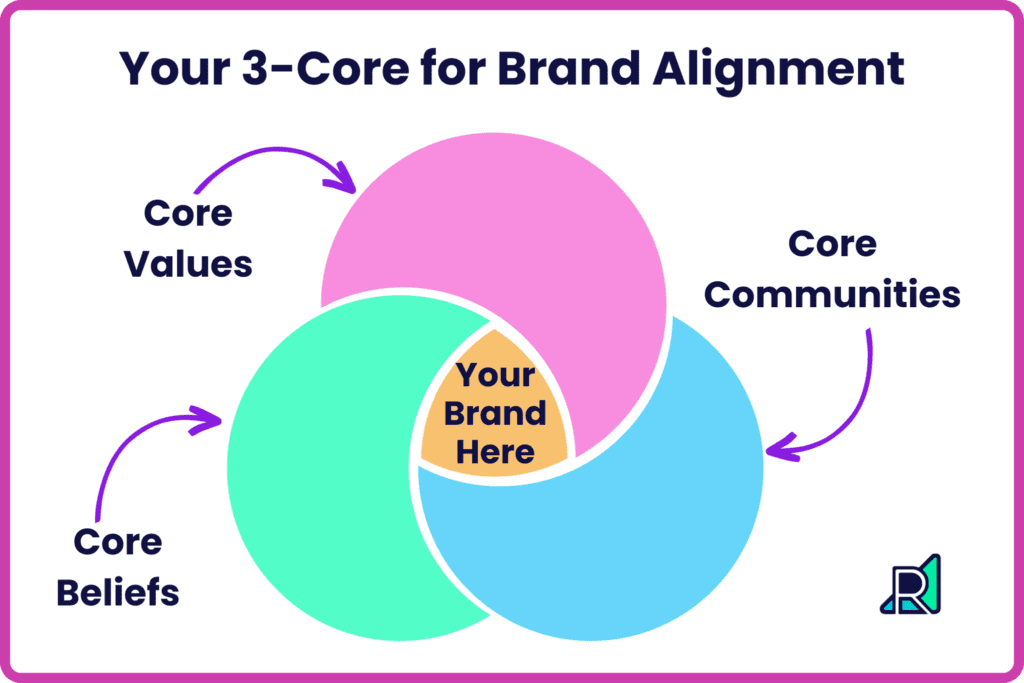
The traditional marketing focus of identifying a problem and providing a solution is formulaic and, therefore, easier for AI to replicate.
The 3-Core focus of values-driven marketing requires human understanding, experience, and empathy that a machine has yet to reproduce.
Marketing will not be replaced by an AI that is unable to relate to imposter syndrome, the desire for self-determination, worry for a loved one, or the need to belong. Only another human can see and understand the nuances that hold a community together.
Great marketers build on those relationships to help the brands they work with stand out from the competition.
#8 - Ethical and Socially Responsible Marketing Will be Essential for the Industry’s Future.
As more companies bend to customer demand and increase privacy around data, the days of being able to adjust minute details of your marketing strategy until you reach the highest point of manipulation are rapidly becoming obsolete.
What happens when we can no longer view every single microaction as data points on a spreadsheet? We have to recognize the human on the other side of the screen and connect in a more genuine way.
Fortunately, authentic connection—based on shared values and worldview—tends to breed brand loyalty, which is much more sustainable than any growth hacks.
And, a marketing department replaced by AI will quickly find itself unable to make or maintain those much-needed connections.
So… Is There Anything to Worry About?
For the mid or entry-level marketer who insists on doing what has always been done?
In a word: Yes.
This is a watershed moment. It’s time for marketers to dive deeper and expand their range if they don’t want to be left behind.
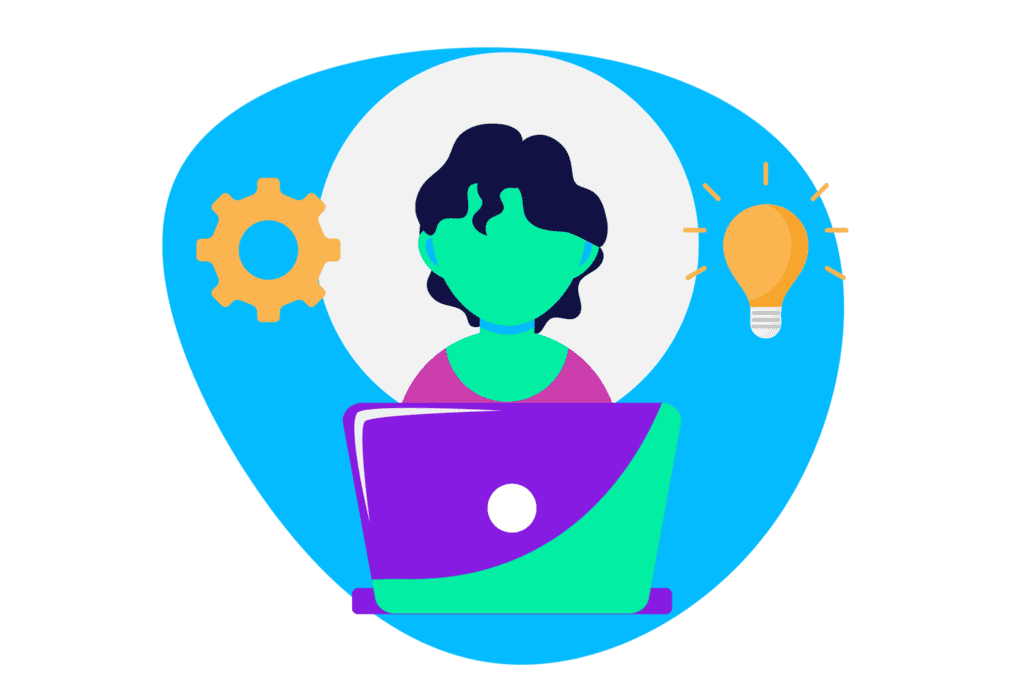
Training in technical or creative skills and data analysis is no longer enough. We must find ways to provide value that AI is incapable of. To stay relevant, we must level up to more strategic, empathetic, and adaptive thinking, as well as a deeper understanding of human behavior.
Future-Proof Your Career: AI Won’t Entirely Replace Human Marketers, but Only If We’re Willing to Re-Skill and Think Bigger
There are two main ways marketers can remain relevant in our AI-fueled world.
1. Get to know what AI is capable of.
When we focus on leveraging AI instead of avoiding it or fighting against it, we can elevate our work by making it more efficient and productive—and perhaps form deeper, more sustainable connections in the process. For example, you could earn certifications to expand your AI skillset, develop your skills in prompt engineering, or learn more about Dynamic Creative Optimization (DCO).
If you’re just getting started, you can also explore our beginner’s guide with practical ChatGPT prompts you can use for your digital marketing strategy.
At the same time, ensure that you tread carefully when it comes to integrating AI into your work. Take time to learn about and think through privacy, copyright, and microaction implications. As with all other marketing decisions, how you use AI tools should align with your company’s values.
2. Expand what you are capable of.
Getting to know AI can help you pinpoint its limitations and what value you can contribute. Take the time that using AI is saving you and invest it back into your work to dive deeper than data points and formulaic scripts.
Sustainable, impactful marketing relies on human connection and understanding.
Begin analyzing and questioning the greater strategy. Identify your brand’s 3-Core and how you can use those aspects to strengthen the connections between your brand and your audience. Learn more about what drives human behavior and why.
There is a central question that all great marketers ask of the product, service, or brand they are promoting: What value does it offer?
For marketers in the 21st Century facing rapid technological changes that threaten to replace us, we must remember to ask ourselves the same question.
GET SUPPORT
Looking for a nuanced marketing strategy driven by human connection?
Consider partnering with us for values-driven coaching that helps you connect with your audience and make the impact you’ve been dreaming about.

